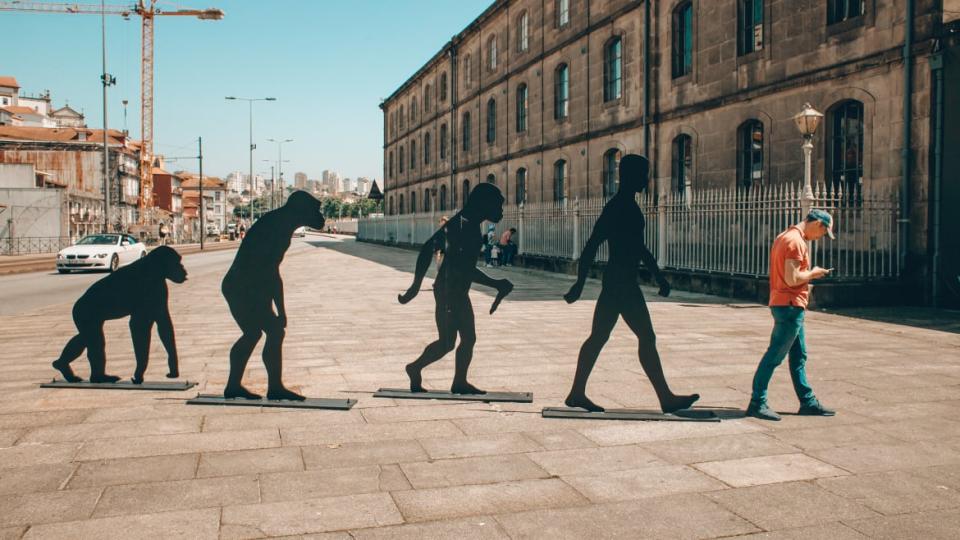Why City Dwellers Are Actually Bad at Navigating

Looking for a new excuse to tell people why you’re always late to things? You can try blaming your brain. A new study in Nature Computational Science shows that people’s brains aren’t optimized to travel the shortest distance to get to their destinations. Instead, we’re naturally prone to simply choose paths that seem to point toward the destination—the “pointiest path,” so to speak.
It’s called vector-based navigation: the formulation of a journey based on angles that allow the traveler to face their destination as they move. Humans, it turns out, just like to be facing their endpoint as they walk—even if it costs them more time.
Slightly Creepy New Robot Walks, Hops, Flies, and Skateboards
The researchers, led by Carlo Ratti at MIT, found this out through a deep dive of anonymous GPS signals collected from the cell phones of more than 14,000 pedestrians located in the Boson metropolitan area. That data included more than 550,000 paths and routes taken by navigating the city on foot over the course of one year.
When Ratti and his team analyzed the data, they found that the most preferable routes weren’t the shortest—just the ones pointing the most toward the final destination.
What’s going on here? The researchers believe it’s a trade-off the human species made as it evolved: We’ll exert less brain power trying to figure out complicated paths by settling for the pointiest one, and instead devote some of that energy to other priorities like avoiding getting eaten by a lion. This would actually make a lot of sense, since vector-based navigation is observed in other animals as well.
According to Ratti, the lesson is learned: “Human beings are not optimal navigators.”
Get our top stories in your inbox every day. Sign up now!
Daily Beast Membership: Beast Inside goes deeper on the stories that matter to you. Learn more.

 Yahoo Finance
Yahoo Finance 